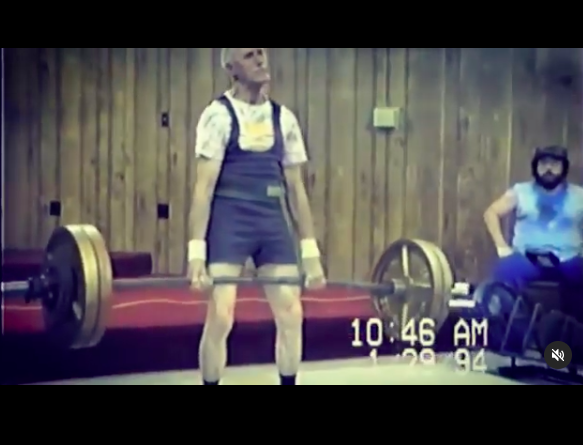|
Watch a video of an 80-year-old man deadlifting 529lbs, and connect the dots which show us that guy is just a human like you. Our physical states are outcomes from our choices. Not all. But not none. Choose to get stronger as you age. Choose to improve balance. Or choose to get weaker, and choose to lose balance.
The muscle fibers which govern balance are rapidly reacting to changes in sensory feedback. Sometimes called “fast twitch” because of this, the Type II muscle fibers are directly involved in the skill which we all call “balance.” Since the early 2000s, researchers have known with great confidence that reduction of strength WILL raise fall risk and other balance-related dangers: https://pubmed.ncbi.nlm.nih.gov/18711425/. And they supposed it many decades prior. If you aren’t getting stronger, you are losing your balance. Interestingly enough, static balance does not necessarily correlate with dynamic balance. Study findings are unclear. That is, if you can stand on one or both legs a little better than before, there isn’t necessarily any improvement in your reaction to icy ground while walking. Thus, most balance training, exercises, and therapy are unsubstantiated. It doesn’t mean they’re assuredly wrong. It just means we know a BETTER way with more evidence supporting it: strengthen. You can peruse every single meta-analysis on balance and find it dwindles ON AVERAGE with age. That’s not interesting. What’s interesting is the question about outliers. What’s different about older people who have great balance and LESS risk of fall? They have more relative strength. We only see balance evaporate with age because the average person insists on getting weaker as he gets older. Again, this is why I’m in a constant state of irritation by people refusing to accept that fitness is not the scale. FITNESS IS NOT THE SCALE. The scale doesn’t tell us if you’ll fall, break your hip, contract a nosocomial disease, go septic, and die within the next 5-10 years. But loss of strength IS predictive for this: https://www.ncbi.nlm.nih.gov/pmc/articles/PMC5820209/. Getting weaker? Risk is going up. Getting stronger? Risk is going down.
0 Comments
Your comment will be posted after it is approved.
Leave a Reply. |
Elev8 Wellness
|
LIVE. AWESOME.We offer the highest quality in personal fitness, nutrition, and mindset coaching, helping you achieve your fitness, health, wellness and performance goals no matter the obstacle. With virtual online training and private, in-studio training we make it easier to reach your wellness goals safely.
No more can't. No more not good enough. If you compete in a sport, let your mind no longer hold you back from being the greatest. If you don't, let your mind no longer hold you back from being the best version of you that you can be. Sign-up for a Tour Covid Screen Waiver Elev8 Waiver Become an Elev8 Instructor Space Rental |
6244 lyndale ave. s., minneapolis, mn 55423
|
© 2021 Elev8 Wellness LLC. All Rights Reserved. site map | contribute | SITE BY Sproute Creative


 RSS Feed
RSS Feed
